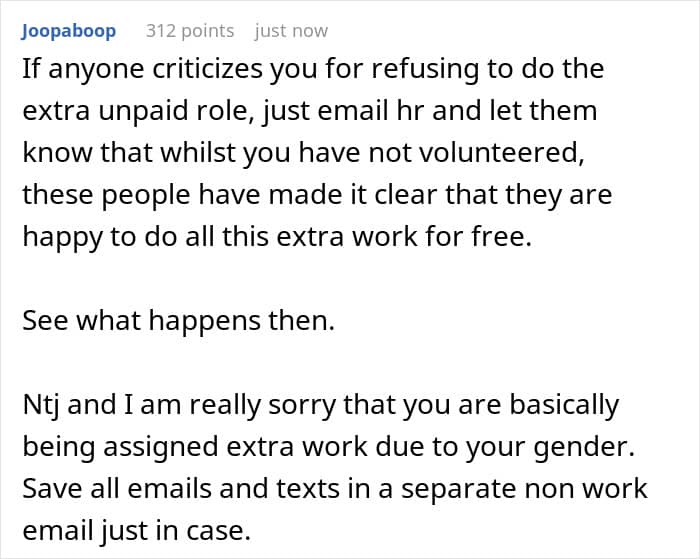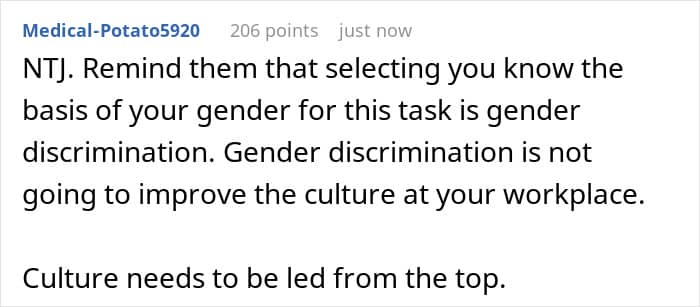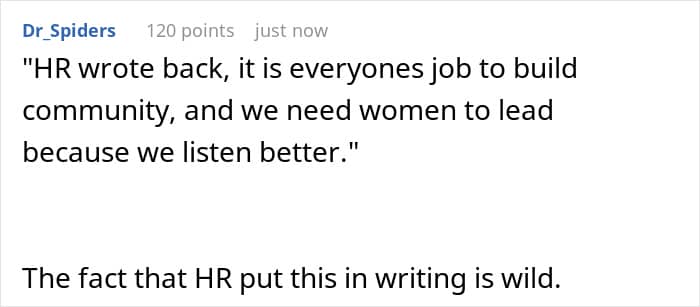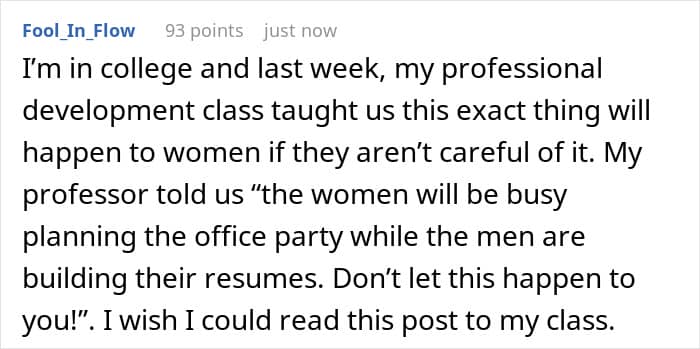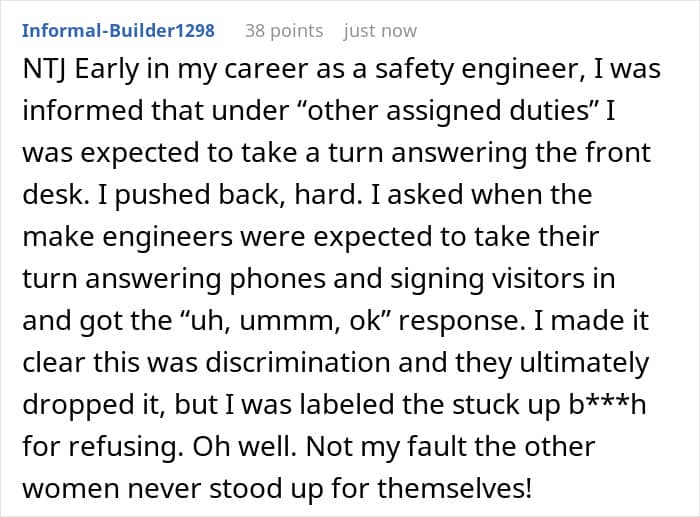Have you ever brought snacks to work once and accidentally got promoted to Chief Happiness Officer without consent? People talk about being helpful at work, but no one really talks about how it can backfire in unexpected ways.
Today’s Original Poster (OP) found herself suddenly assigned to lead an office morale initiative she never agreed to. When she pushed back, she was accused by coworkers of “ruining the vibe” in the office.
More info: Reddit
RELATED:Sometimes, work doesn’t just ask for your skills, it asks for your compliance to partake in things you didn’t agree to, especially ones that fall outside your role

The author worked at a small tech company and was asked to take on a new culture initiative, including organizing events and office morale tasks, despite already having a full workload

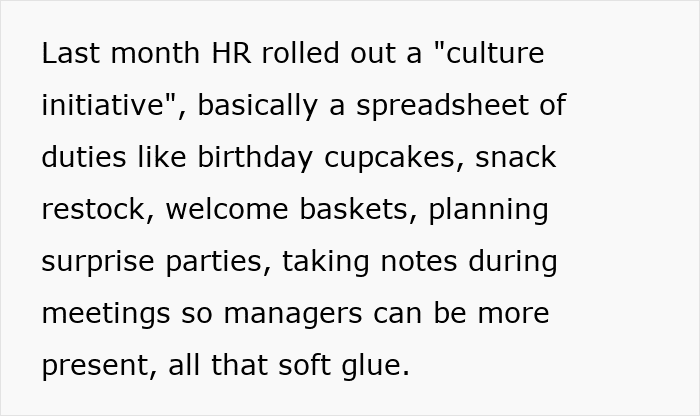


She was told she was chosen because of her gender and “good vibes” from bringing muffins, which she politely refused, insisting she would participate but not plan

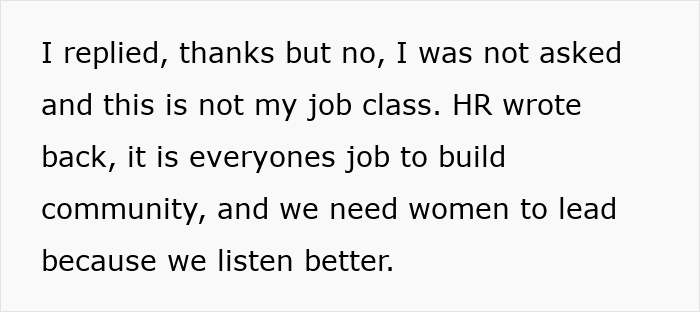
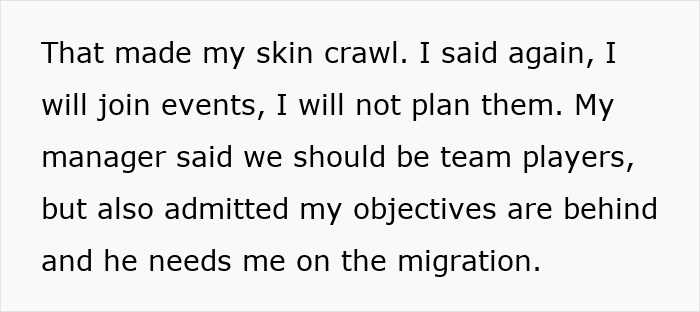
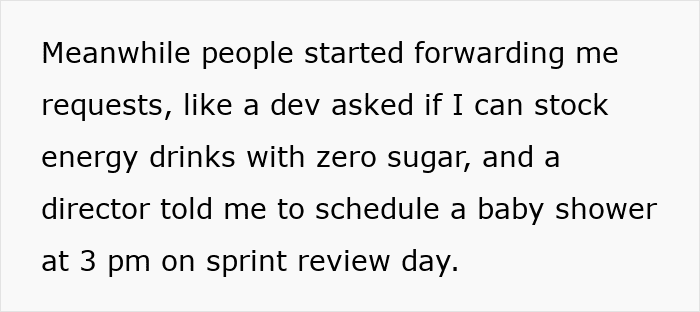

Requests kept coming from coworkers and HR, who even made her the owner of a “morale” group chat, leading her to step back and formally decline the role
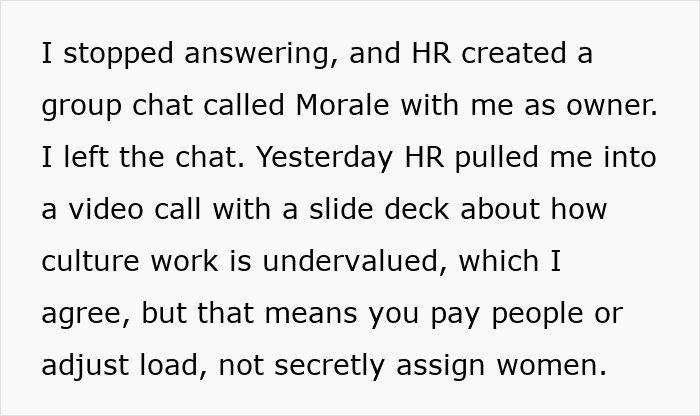
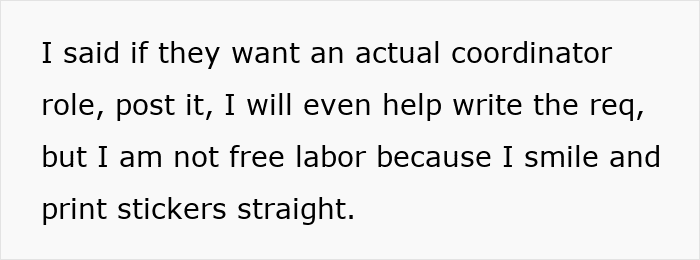
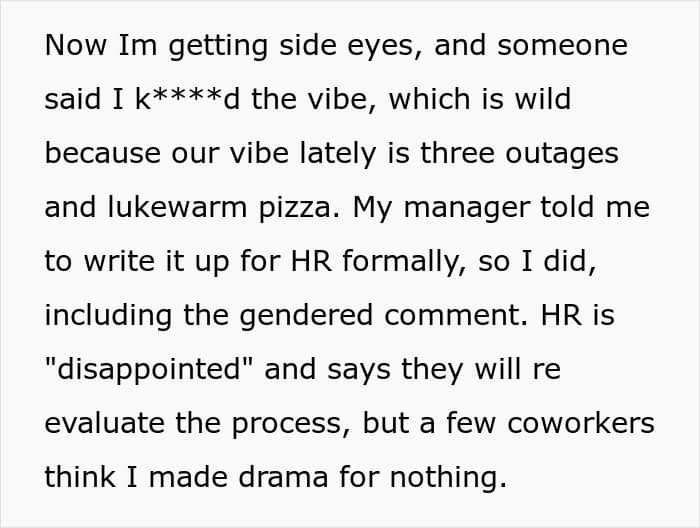
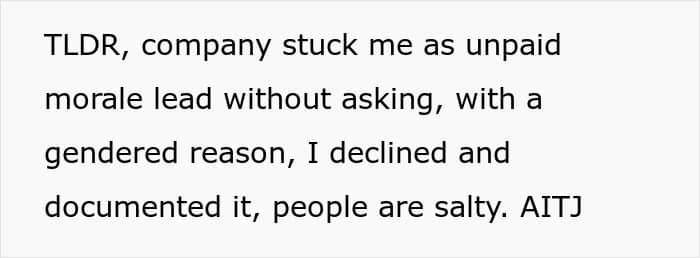
After a meeting with HR, she filed a formal report, which prompted HR to re-evaluate the process, while some coworkers criticized her for “ruining the vibe”
The OP shared that she works at a small tech company in hybrid form, and that her plate is already full from dashboards, data migration, and the dreaded on-call pager. And then HR announced a new culture initiative meant to boost morale involving restocking snacks, planning birthdays, and taking notes so managers could be more present.
She noted that she didn’t even sign up for it, but after missing the meeting, she received a cheerful ping celebrating her for being the new lead of the initiative. Apparently, someone decided she had “good vibes” because she once brought muffins, which were from Costco, by the way. When she politely declined, HR hit back and told her that it would be good for women to lead because they listen better.
She pushed back again, though, reminding them that culture work deserves either time or compensation. Still, despite her clear boundaries, the requests rolled in from zero-sugar energy drinks and surprise baby showers, to fun team days. Meanwhile, her core responsibilities piled up, and when she stopped responding, HR created a “morale” group chat and made her the owner, which she promptly left.
Even her manager admitted she was behind on deliverables but still urged her to “be a team player.”. Finally, the OP filed a formal report, including the gendered comment. HR expressed disappointment and promised to reevaluate the process. Some coworkers accused her of “ruining the vibe” which left her wondering if she did anything wrong.

The OP’s experience reflects a broader workplace pattern known as office housework. According to Forbes, this term describes the countless small but necessary tasks that keep an office running like organizing events, taking notes, or restocking supplies. While these jobs are vital to daily operations, they’re often seen as trivial compared to core responsibilities.
Building on this, Premierline reports that women perform about 29% more office housework than men. They note that they are more likely to be asked to take on these thankless duties, and even when not directly approached, they tend to volunteer more often.
However, this isn’t because women enjoy the work, rather ABC News highlights how this expectation is deeply rooted in traditional gender norms. Women are still disproportionately expected to handle administrative and supportive roles because of persistent stereotypes that label them as nurturing and community-focused.
These patriarchal assumptions blur the boundary between professional duties and emotional caretaking, reinforcing a system where women’s contributions are undervalued. The OP’s story perfectly illustrates how these invisible pressures play out in real offices today where a single act of kindness, like bringing muffins, can suddenly turn into unpaid “culture work.”
Netizens expressed strong support for the OP, emphasizing that she should not be forced into unpaid work that falls outside her role. They also highlighted that the gendered aspect of the assignment was particularly problematic, noting that using her gender as a reason to select her was inappropriate and unfair.
If you were in the OP’s shoes, would you have taken on the office morale duties or pushed back like she did? We would love to know your thoughts!
Netizens insisted that the author should not be forced into unpaid work, and also encouraged her to consider looking for other opportunities if the situation persists

